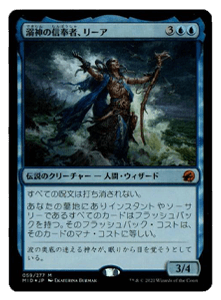On this edition of Pondering Policy, we will be tackling some popular communication questions and what tournament policy considers “sporting” and “unsporting” behavior.
Communication Policy (MTR 4.1-4.8)
While the Magic Tournament Rules delve into specific definitions for different types of information and how they need to be communicated, our focus today will be on more concrete questions and how policy answers them.
Question 1: Do I have it?
When you are casting a spell that requires finding a card on resolution (such as Infernal Tutor or Burning Wish), proactively stating the intended card is generally considered a “future action,” and falls under the category of things about which you are allowed to bluff. However, once that spell is resolving, you are not allowed to lie about the action you are taking. This means that is it legal to say “Cast Burning Wish, get Tendrils of Agony, kill you.” even when you know that no such card exists in your sideboard. However, in this very similar scenario: “Cast Burning Wish.” “Resolves.” “Get Tendrils of Agony, kill you.” the Storm player has just cheated and would be Disqualified (if the Storm player knows there is no Tendrils of Agony in their sideboard). This is why it is good practice for tournament players to make you kill them, as the legal version of this bluff masquerades as a common time-saving shortcut. Many times, your opponent will have you show them the indicated kill card. If that is the case, you should verify that your Burning Wish is, in fact, resolving. Inquiring about a choice normally made during resolution is an enshrined tournament shortcut, which experienced pilots of The EPIC Storm will remember from playing with Cabal Therapy. I believe it also applies here, as your opponent asking, “What are you getting?” is analogous to “What are you naming?” in that both questions are regarding a choice made during resolution. Asking for that information is implying that the spell is resolving and it is inappropriate for your opponent to do so when they intend to respond, so the tournament shortcuts deny them that opportunity.
Question 2: What does that do?
While I am not personally on this particular bandwagon, non-English cards are quite popular among tournament players. This can lead to situations where a player knows exactly what their card does, but may not want to volunteer that information to their opponent when asked. The Oracle text of a card is considered Derived Information. This puts in in the same category as the power and toughness of Tarmogoyf. That is, you are not allowed to lie about the stats of your Tarmogoyf, but you are also not required to answer any questions about it. Furthermore, you are allowed to answer with incomplete statements as long as they are not actively false. For example, “How big is your Tarmogoyf ?” “I have a land, an instant, and a sorcery in my graveyard.” is a legal exchange even when the creature is a 5/6 due to an artifact and planeswalker in the opponent’s graveyard. Since Oracle text is also Derived Information, we can apply this logic to our non-English cards. If you cast a Japanese Echoing Truth targeting your opponent’s Chalice of the Void and your opponent asks, “What does that do?” you are allowed to say, “It bounces your Chalice of the Void.” without mentioning that it will also bounce any others that are on the battlefield. The line in policy is that your answers must be true, but do not need to be complete. You can even answer with, “It’s a blue spell.” and that is legal. Your opponent will likely take a dim view of your lack of helpfulness, but you are not breaking any rules by doing so. Keep in mind that players can always call a judge to request Oracle text and it is good practice to do so.
Unsportsmanlike Conduct (MTR 5, IPG 4)
Question 3: What did you say?
Everyone handles stress and disappointment differently. Being able to effectively manage tilt is a skill that will help you perform better in tournaments, which means that not everybody has this skill yet. The Magic Tournament Rules and Infraction Procedure Guide both have extensive sections on what constitutes Unsportsmanlike Conduct. MTR 5.4 covers the full range while IPG 4.1, 4.2, and 4.5 break them down into individual categories with increasing penalties. Anything that can be interpreted as disruptive or discomforting to your opponent is eligible for a Warning at minimum. This does include snide comments like, “You’re such a f***ing luck-sack,” or “Your piece of sh** deck carried you.” If your comments are more targeted at your opponent, that can easily escalate into Match Loss territory. Any use of gendered or racial slurs will get you a Match Loss immediately. Implications or threats of physical violence will get you straight-up booted from the tournament. Tilting losses happen to the best of us, especially with a deck that plays to probabilities the way The EPIC Storm does. Sometimes Ad Nauseam kills you and not your opponent. Sometimes your twelve Goblin Tokens lose to a top-decked Stoneforge Mystic. Neither of these justifies insulting your opponent. Try to practice some self-awareness and notice when you are becoming upset. Call a judge and ask for a bathroom break. This is a request that is always granted as long as it’s not excessive. If you have time between rounds, get some distance from the tournament floor. Find a strategy that works for you. Also, if you do receive a Warning for Unsportsmanlike Conduct, do not take it out on the judge assessing the penalty. If you wish to appeal the penalty, do so calmly and respectfully. If the appeal is upheld, take that as a sign that your behavior is likely crossing a line and needs to be watched closely.
I hope you have a clearer understanding of what is expected of you when it comes to communication and sportsmanlike conduct at tournaments. If you have any ideas for future articles, please feel free to drop me a line through Twitter, Facebook, or email. Until next time, Storm fair and Storm fun!








